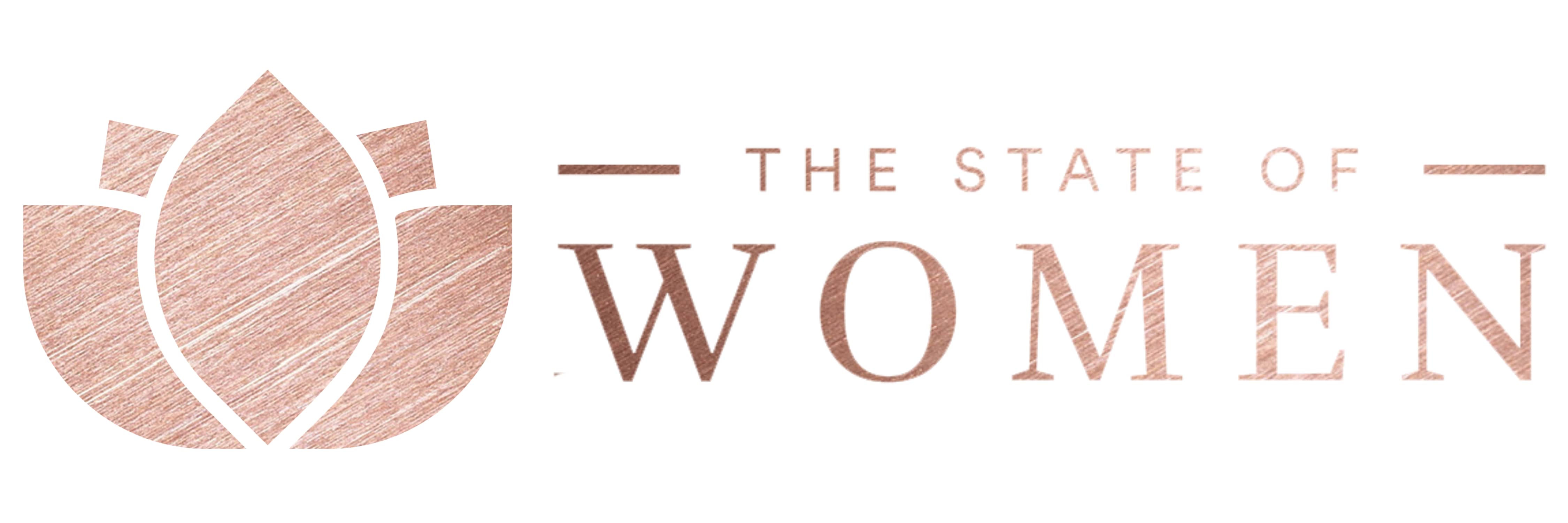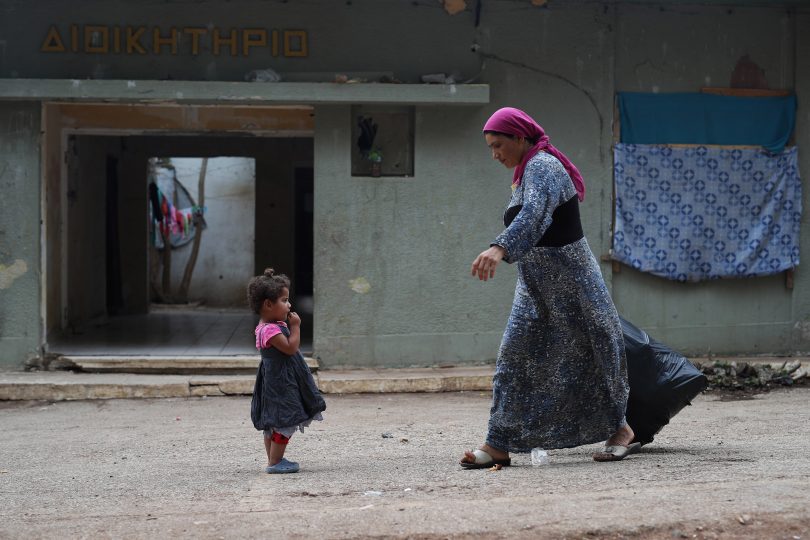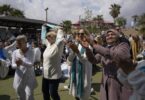This article originally appeared on Refugees Deeply and the Women & Girls Hub of News Deeply, and you can find the original here. For important news about the global migration crisis and issues affecting women and girls, you can sign up to the Women & Girls Hub email list as well as the Refugees Deeply email list.
By Preethi Nallu
Speaking at the opening of the United Nations Refugee Summit on September 19, Women’s Refugee Commission members reiterated their calls for a “complete rethink of traditional humanitarian response.” This conversation is part of our “Voices from the Summit” coverage.
NEW YORK – Addressing world leaders at the first roundtable of the U.N. Summit for Refugees and Migrants on Monday was a defining event for Foni Joyce from South Sudan. A 24-year-old woman who was displaced from her home due to conflict, she opened the conversation at the morning session, as an individual representative of displaced women and girls across the world whose specific needs deserve closer attention amid the accelerating migration influxes.
“The solutions are right in front of you. We can contribute,” said Joyce, speaking on behalf of the Women’s Refugee Commission (WRC). Joyce had to defy odds to be able to graduate from university, but she would like to see education and employment become more accessible to female refugees in their transition towards stability. Indeed, it is not often that women are leading voices at the podium, whether with international policies or community-level decisions within displaced communities. The WRC has been working on rectifying this dearth of female voices that has become abundantly clear over the Mediterranean migration crises.
Given that a majority of women like Joyce increasingly end up in urban centers of the world, while seeking asylum, WRC has been documenting this growing trend and its impact on female refugees over the past several years.
In February of this year David Miliband, the president of the International Rescue Committee, announced a statistic at the U.N. that rang alarm bells for mayors of cities and municipalities across the globe.
“At least 60 percent of refugees are now living in urban areas,” Miliband said during his briefing.
This never-before-witnessed level of urban displacement is being investigated by field research that calls for a more “nuanced” understanding of the hurdles that female refugees, in particular, face in urban contexts.
Earlier this year, WRC published a report called “Mean Streets,” based on conversations with diverse refugee populations in Quito, Ecuador; Beirut, Lebanon; Kampala, Uganda; and Delhi, India. Over this summer, they further identified the risks that female refugees in Greece and Turkey, especially those stranded in urban centers, encounter due to an “ineffective” deal between the European Union and Ankara.
Reiterating their “Call to Action on Protection Against Gender-based Violence in Emergencies” at the U.N. summit in New York, the WRC’s researchers explain that policy initiatives do exist to protect female refugees in transition and once they reach their destination. What WRC researchers would like to see is an explicit commitment from governments and acceptance of a concrete action plan that they, together with 50 other groups, have endorsed as part of a five-year road map.
The latest findings, WRC says, show that Greece is “shockingly ill-equipped” to handle basic gender-based needs. Marcy Hersh, senior advocacy officer at WRC, spoke with Refugees Deeply about how the U.N. summit can pave the way not only for protection of women and children but also for providing livelihoods and education. These crucial elements can reduce the risk of women and minors being trafficked, attacked or manipulated into harm.
Refugees Deeply: Could you spell out your main campaigning points at the U.N. Summit for Refugees and Migrants?
Marcy Hersh: The summit should advance effective asylum and legal protection mechanisms in domestic migration management policies and in international forums. It must seek to end arbitrary detention for asylum seekers and instead emphasize the lifesaving importance of access to comprehensive reproductive health services. We are looking for an explicit, detailed commitment to protect all displaced women and girls from gender-based violence while in transit and upon reaching their destinations. We are also calling for expansion of legal and safe employment opportunities that leverage the capacity of refugee women and youth to sustain and protect themselves and their families.
Refugees Deeply: Is it possible to formulate a global, binding policy to protect displaced women and girls from gender-based violence (GBV)? How would such a policy come into effect?
Hersh: I would say that that the policy initiatives needed to protect displaced women and girls from the threat of gender-based violence, in fact, already exist and it is our hope that the U.N. Summit for Refugees and Migrants is an opportunity to further the uptake of said initiatives. The “Call to Action for the Protection of GBV in Emergencies” is a commitment by all humanitarian partners to change how we work so that every humanitarian and refugee response provides safe and comprehensive services for those affected by GBV and mitigates GBV risk. A group of more than 50 governments, U.N. agencies and NGOs have developed a five-year road map that outlines concrete steps all humanitarian and refugee stakeholders can take over the next five years to build this change into the policies, systems and mechanisms we use to respond to emergencies. Each stakeholder has unique strengths and capacities, and by coordinating action and working together we can provide better protection from GBV to the people we serve. When more partners become members of this initiative, and fulfill their commitments under the road map, displaced women and girls will experience meaningful protection.
Refugees Deeply: How does the current E.U.-Turkey deal expose female refugees to gender-based violence (GBV)?
Hersh: Virtually overnight, the E.U.-Turkey agreement forced an unprepared and ill-equipped Greece to shift from being a transit country, where refugees stayed for a few days, to being a host country for 50,000 stranded refugees seeking legal protection. The consequences have been alarming. The deal has had profound and distressing ramifications for refugees, especially women and girls seeking asylum and family reunification in Europe. Refugees now endure prolonged displacement, family separation and unacceptable hurdles to accessing legal protection. Refugee women and girls face unsafe and dire living conditions, increased risk of gender-based violence and heightened fear, anxiety and uncertainty.
Refugees Deeply: How can this situation be remedied?
Hersh: In our recent report, the Women’s Refugee Commission issued a number of recommendations to the European Union, Greece and Turkey. Foremost, we urge the E.U. to review and overhaul its humanitarian and asylum policies to fairly, humanely and expeditiously respond to the needs of all refugees seeking safety, protection and relocation and adhere to international and European laws that bar the return of refugees to unsafe countries. We call on the E.U. to increase financial, material and human resources and oversight to help Greece and Turkey effectively adjudicate claims and deliver needed humanitarian services.
We call on both Greece and Turkey to establish appropriate alternatives to sheltering refugees, wherever they are. Turkey is also urged to ensure refugees have equal access to legal protection and aid regardless of nationality, and to facilitate and increase humanitarian assistance, legal counsel and psychosocial support for returned refugees.
Refugees Deeply: How can the Greek asylum system be scaled up to better protect the interests of all asylum seekers and lone women in particular?
Hersh: Greece must build the capacity and resources of the Greek Asylum Service to ensure the timely and fair review of asylum claims, as well as requests for family reunification or relocation. They must ensure that refugees have information about legal options and processes in a language they understand. Lastly, they must simplify and streamline administrative requirements and decision-making processes to reduce bureaucratic delays.
Greece should coordinate closely with international aid organizations to upgrade safety and services at all sites – increasing access to specialized medical care, psychosocial support and safe spaces for GBV survivors, and reproductive health care and mental health services.
Refugees Deeply: Is there evidence of discrimination based on nationality in terms of aid and shelter, once refugees arrive in Greece?
Hersh: Refugees’ rights and ability to access legal protection in Europe vary dramatically depending on nationality. WRC believes policies linked to nationality create an unofficial and unfair hierarchy among refugees – impacting everything from protection options to the ability to access services. Such discriminatory policies are also in contradiction of the concept and tradition of due process and individualized determinations.
Refugees Deeply: What are the conditions you discovered in Turkey that render it less than safe for mass returns?
Hersh: WRC was not granted direct access to the centers where refugees are returned. From our mission in Turkey, we learned that returned refugees arrive in Turkey most often by boat or sometimes by air and are then transported to one of two “removal centers.” Non-Syrians are largely sent to a center in the Kirklareli area near the Bulgarian border and Syrian refugees to the Düziçi center, a remote site in southern Turkey. Turkey describes removal centers as temporary accommodation while background checks and the registration process unfolds, but WRC would characterize the facilities as detention centers. Freedom of movement is limited at these sites, and individuals can’t leave the premises. Possessions were confiscated and specialized medical care, legal counsel and other needed services are reportedly not available. European MEPs who visited the sites “documented violations of fundamental rights” and cases of “inhumane and degrading treatment.”
Refugees Deeply: Given that a majority of female refugees across the globe are now in urban centers and often on streets, how should U.N. agencies and NGOs address the needs of such refugees differently? Where has UNHCR’s 2009 Urban Policy fallen short?
Hersh: Protecting urban refugees with heightened risks, including women and adolescent girls, requires innovative, tailored programming and outreach. First, recognizing that they are the chief responders in urban settings, humanitarians must systematize and broaden engagement of local actors. Next, in recognition that shelter and livelihoods are extremely fraught with risks and dangerous for urban refugee women, humanitarians must develop proactive and targeted strategies for addressing GBV risks related to shelter and livelihoods. Lastly, humanitarians in urban settings must balance programming done within refugee communities with sessions in the host community. Women refugees remarked that while GBV awareness-raising activities, for example, are beneficial to refugee communities, it is equally important – if not more important, in some locations – to conduct these activities within the host communities where they feel vulnerable and targeted.
Refugees Deeply: How can the U.N. better engage local actors and why is this key?
Hersh: Local actors are the first responders in humanitarian emergencies. They are the first on the scene, they have the best knowledge of humanitarian needs, and will stay the course, providing lifesaving support to displaced populations, long after international donor funding dries up and international partners have moved on to the next crisis. The World Humanitarian Summit included in its Grand Bargain a commitment to direct 25 percent of humanitarian funding “as directly as possible” to local and national organizations. Fulfilling this pledge would be a major milestone and would firmly recognize the essential contributions of civil society organizations in humanitarian response.
Refugees Deeply: How would you propose for “accountability mechanisms” to be put in place to assess the performances of U.N.’s implementing partners?
Hersh: There needs to be far greater accountability throughout the humanitarian system, not just from the U.N. to its implementing partners, but in fact a more robust system of mutual accountability that resonates at all levels. When donors issue funds to an implementing partner, they will include mandatory monitoring and reporting to ensure that the aims of the project are achieved and that the funds are well spent. In order to achieve thorough and meaningful change throughout the humanitarian system, accountability must go in the other direction as well, from implementing partners, up to the U.N. and donors.
The World Humanitarian Summit provides an ideal opportunity to create mechanisms of mutual accountability, where everyone’s commitments, be they from an NGO, a U.N. agency or a donor, all are monitored and publicly reported on, to ensure that all actors fulfill their pledges. It is only through collective action and collective accountability that members of the humanitarian community will meet our ambitious and essential goals.



